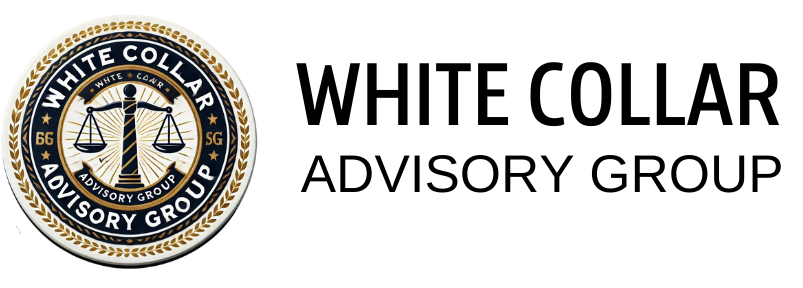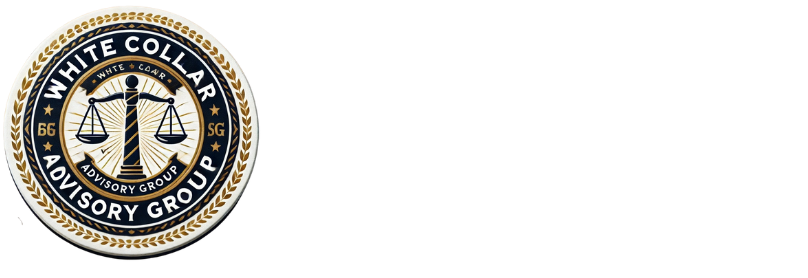What Is Healthcare Fraud?
Healthcare fraud is a federal crime defined under 18 U.S.C. § 1347, making it illegal to knowingly and willfully execute, or attempt to execute, a scheme to defraud any healthcare benefit program.
This crime involves deceptive practices designed to obtain money or services fraudulently from government programs like Medicare and Medicaid, private insurance companies, or healthcare providers.
Unlike crimes involving physical theft, healthcare fraud is built on false claims, billing schemes, and manipulation of medical services for financial gain.
Facing Federal Healthcare Fraud Charges?
Healthcare fraud charges can be life-altering, with federal prosecutors achieving conviction rates over 90%. These cases are aggressively pursued because they often involve government programs like Medicare, where prosecutors are under pressure to secure convictions.
How White Collar Advisory Group Can Help You
That’s where White Collar Advisory Group comes in. We prepare criminal defendants in dealing with the US District Court system and while attorneys focuses on courtroom strategy, we focus on protecting your future by preparing you for the realities of federal prosecution and federal prison life.
Our services go beyond legal defense—we focus on what comes next:
- Sentencing Preparation: Learn how to present yourself effectively to mitigate sentencing outcomes, including strategies for the Presentence Investigation Report (PSR).
- Prison Consulting: Guidance on navigating the federal prison system, from security classifications to daily survival strategies.
- Sentence Reduction Strategies: Advice on qualifying for programs like RDAP, compassionate release, and sentence mitigation tactics.
- Post-Conviction Support: Assistance with halfway house placement, supervised release, and reentry strategies after prison.
We’ve helped countless clients navigate the federal system, and we’re ready to help you.
Contact Us Now
📧 Email: help@whitecollaradvisorygroup.com
📞 Phone: 480-745-2000`
Self Help Books by Larry Levine
 |
 |
Common Defense Strategies for Healthcare Fraud Charges
Even with aggressive federal prosecution, there are strong defense strategies that can be employed in healthcare fraud cases:
- Lack of Intent: Demonstrating that billing errors were mistakes, not intentional fraud.
- Insufficient Evidence: Challenging the prosecution’s ability to prove fraudulent intent beyond reasonable doubt.
- Good Faith Defense: Showing that the defendant believed services provided were medically necessary and billed appropriately.
- Regulatory Ambiguity: Arguing that complex healthcare regulations led to misunderstandings rather than criminal behavior.
- Entrapment: In cases involving undercover investigations, arguing that the defendant was induced to commit a crime they otherwise wouldn’t have.
The foundation of a strong defense is early legal intervention, detailed case analysis, and strategic planning.
Common Types of Healthcare Fraud Include:
- Billing for Services Not Rendered: Charging for procedures, tests, or appointments that never occurred.
- Upcoding: Inflating medical codes to bill for more expensive procedures than were actually performed.
- Unnecessary Medical Services: Performing and billing for tests or procedures that aren’t medically needed.
- Phantom Providers: Using the identities of real or fake healthcare providers to submit fraudulent claims.
- Prescription Fraud: Writing unnecessary prescriptions or distributing drugs through fraudulent means.
- Kickback Schemes: Offering or receiving payments for patient referrals, violating the Anti-Kickback Statute.
How Federal Authorities Investigate Healthcare Fraud
Healthcare fraud investigations are often complex, involving multiple federal agencies like the FBI, the Department of Health and Human Services (HHS) Office of Inspector General (OIG), and the Department of Justice (DOJ). These cases frequently target both individuals and organizations, from doctors and pharmacists to hospital systems and healthcare companies.
Key Components of Federal Investigations:
- Claims Data Analysis: Reviewing billing patterns to identify anomalies or suspicious trends.
- Financial Records Subpoenas: Examining bank accounts, payment histories, and insurance claim submissions.
- Medical Record Audits: Cross-checking patient files with billing claims to detect inconsistencies.
- Surveillance and Undercover Operations: Monitoring activities within medical offices, pharmacies, or billing companies.
- Whistleblower Testimony: Relies heavily on insider information from former employees or associates under the False Claims Act.
Federal prosecutors build cases using extensive paper trails, electronic health records, and financial audits to prove fraudulent intent.
Penalties & Federal Sentencing for Healthcare Fraud
Healthcare fraud carries severe penalties under 18 U.S.C. § 1347, with sentences influenced by the scale of the fraud, the financial loss, and the defendant’s role in the scheme.
Potential Penalties Include:
- Up to 10 years in federal prison per count (or up to 20 years if the fraud resulted in serious bodily injury).
- Fines up to $250,000 for individuals (or higher for organizations).
- Mandatory restitution to repay government programs and insurance companies.
- Exclusion from Federal Healthcare Programs: Defendants may be banned from participating in Medicare or Medicaid.
Sentencing Enhancements Apply If:
- The fraud involved large-scale financial losses exceeding $1 million.
- The scheme resulted in patient harm or risk to public health.
- There was abuse of a position of trust, such as a doctor or healthcare administrator committing the fraud.
- The offense involved sophisticated means, including shell companies or complex billing software manipulations.
Federal sentencing follows the U.S. Sentencing Guidelines, with offense levels determined by financial impact, intent, and aggravating factors.
Frequently Asked Questions About Healthcare Fraud
Is healthcare fraud always a federal crime?
Yes, especially when it involves government programs like Medicare, Medicaid, or TRICARE. Private insurance fraud can also trigger federal charges if it crosses state lines.
Can billing mistakes lead to healthcare fraud charges?
While honest mistakes typically aren’t prosecuted as fraud, patterns of suspicious billing or repeated errors may raise red flags for investigators.
What is the False Claims Act, and how does it relate to healthcare fraud?
The False Claims Act allows the government to pursue individuals or organizations that submit false claims to federal programs. Whistleblowers can file lawsuits under this act and may receive a portion of recovered funds.
Will cooperating with federal prosecutors reduce my sentence?
Cooperation can potentially lead to a reduced sentence, but it comes with risks. Always consult an experienced attorney before agreeing to cooperate.

